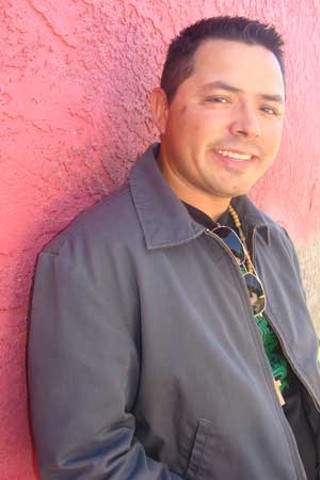How did you realize you wanted to be a filmmaker?
(I was) in West Covina (Calif.); that's where I was raised and lived up until 1998, when I got out of high school. Before high school, I goofed around with my older sister and brother doing our video version of The Phantom of the Opera and other little plays. And then in high school, with some buddies of mine, we'd make kung fu-type movies in the backyard. It got to the point where I was spending more time with the video camera than studying for finals. This didn't sit well with my mom at all.
How did you end up living and working in Tucson?
It was because of Sept. 11. ... A job I was counting on in (Los Angeles) was put on hold while I was visiting my parents here. Suddenly, I didn't have a job out there as planned. I was marooned here. But things worked out for a reason, because I got hired on by Telemundo (as a news cameraman) two years later, and now, thankfully, I'm at KOLD News 13. I like to say these jobs have become the film school I wasn't able to attend. It's taught me discipline, shooting from the hip, thinking on your toes and moving a million miles an hour.
When did you do your first film?
A friend of mine, Martin Zatarain, an acting instructor from Mexico City, collaborated with me on a short film, One Sunday After, by presenting me to some of his willing students. That was my first taste of the stylistic direction I wanted to go in. In 2005, my next film, Miguel's Silence, was shown at the Arizona International Film Festival after (I) narrowly survived a work-related car accident.
How would you describe the way you work?
Well, during my Santa Barbara years, I hooked up with some underground downtown L.A. filmmakers, and I had a good experience finding out what an underground independent-film experience should not be. Though I met a lot of great talent, I experienced a lot of power and control issues stemming from another crew member behind the camera. I could only take it up until a certain point. ... I think this ... filmmaking experience resulted from understanding what a good filmmaking experience should not be.
Is there a secret to doing it right?
The idea that a lot of the time, you've got to roll with the punches, and go with the flow, and literally make something out of what's at hand.
How did you decide where to film in Tucson?
We filmed on the southside a lot, because that's where I live. Tucson gives itself to independent filmmakers. I went to a lot of businesses asking if I could film there. I was honest and said, "I don't have any money, but I would love to feature your place of business, your residence, etc.," in exchange for basically being able to film there. Thankfully, people opened up their doors. ... For the most part, Tucson gave of itself. Location-wise, Tucson is very interesting, because it is very visual. There are a lot of great locales downtown. There are so many colors and visuals.
Where will you go next?
Eventually, like everyone, I'd like to take the next step to a bigger budget and leave the moonlighting behind me. One way or another, either big-time or not big-time, I'm going to continue my filmmaking. I can accept having to do other things to sustain my modest standard of living, but I can't accept excluding filmmaking from my life.
What have you learned on your own that you think is key to becoming successful?
The one thing I really, really want to emphasize for filmmakers at this level is the need for intelligent cinema. ... What you should strive for from beginning to end that will cost you no money is a well-conceptualized story.





